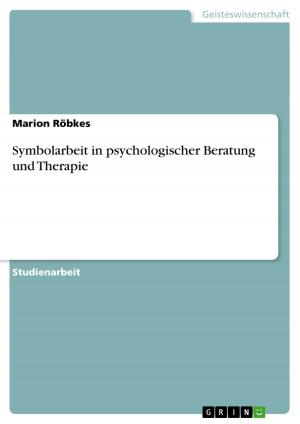Outside the Lines
Identity Formation in the Life-Writing of Emily Carr
Fiction & Literature, Literary Theory & Criticism| Author: | Kirstine Steno | ISBN: | 9783656034452 |
| Publisher: | GRIN Verlag | Publication: | October 21, 2011 |
| Imprint: | GRIN Verlag | Language: | English |
| Author: | Kirstine Steno |
| ISBN: | 9783656034452 |
| Publisher: | GRIN Verlag |
| Publication: | October 21, 2011 |
| Imprint: | GRIN Verlag |
| Language: | English |
Essay from the year 2011 in the subject Literature - Canada, grade: MA, University of Copenhagen (Institute of English, Germanic and Romance Studies), language: English, abstract: In this essay, I want to explore how Emily Carr's life-writing reflects the formation of a unique identity by distinguishing the self from others. This is in part evident in the definitions of herself as other to the majority of Victorian women such as her sisters, her mother and other women she encounters throughout her life. This sense of being misunderstood, out of place and different is a recurring theme in all her life-writing. To examine this, the essay addresses Carr's descriptions of her father, mother, and sisters as well as the self-portrait she paints of herself as a woman on the margins of society. Gilbert & Gubar's theory on 'the Madwoman in the attic' and 'the Angel in the house' will be applied to this end. Other feminist and post-colonial theory such as 'writing back' and 'otherness' will also be featured and explained accordingly. The purpose of this essay is thus to discuss Carr's critique of the Victorian woman's role as a means to assert and justify her own identity. I will commence with a theoretical overview of the autobiographical genre in order to shed light on its illusiveness.
Essay from the year 2011 in the subject Literature - Canada, grade: MA, University of Copenhagen (Institute of English, Germanic and Romance Studies), language: English, abstract: In this essay, I want to explore how Emily Carr's life-writing reflects the formation of a unique identity by distinguishing the self from others. This is in part evident in the definitions of herself as other to the majority of Victorian women such as her sisters, her mother and other women she encounters throughout her life. This sense of being misunderstood, out of place and different is a recurring theme in all her life-writing. To examine this, the essay addresses Carr's descriptions of her father, mother, and sisters as well as the self-portrait she paints of herself as a woman on the margins of society. Gilbert & Gubar's theory on 'the Madwoman in the attic' and 'the Angel in the house' will be applied to this end. Other feminist and post-colonial theory such as 'writing back' and 'otherness' will also be featured and explained accordingly. The purpose of this essay is thus to discuss Carr's critique of the Victorian woman's role as a means to assert and justify her own identity. I will commence with a theoretical overview of the autobiographical genre in order to shed light on its illusiveness.















